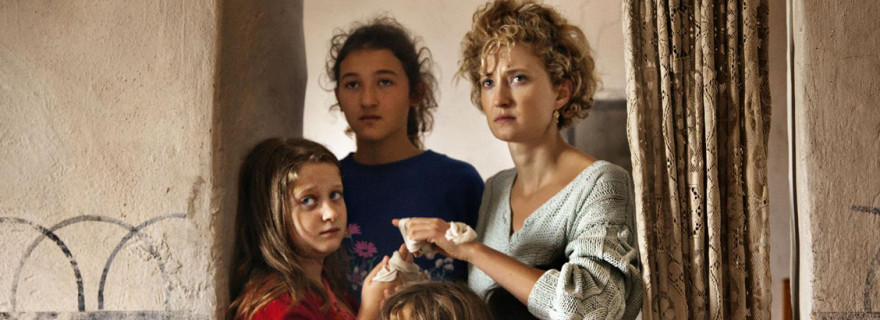'The Wonders'
Movie Rating:
3.5
The new feature by Italian filmmaker Alice Rohrwacher (‘Corpo celeste’) arrives on North American shores with the hype of having won the Grand Jury Prize at Cannes. The award was well-deserved. ‘The Wonders’ is indeed a beautifully observed and almost inexplicably moving piece of work.
At the same time, that prize almost sets unreasonable expectations. This isn’t some sort of grand cinematic achievement that needs awards to mark its spot in cinematic history. No, it’s a much smaller and more delicate work that’s all-too-easy to over-hype. Yet, it truly is a wonderful little movie worth seeking out for anyone who appreciates seeing the joys and pains of life captured on the screen with a vulnerable intimacy.
The autobiographical story unfolds best in rambling episodes rather than its connective tissue of plot. Very much inspired by her own family, Rohrwacher’s cameras follow an unconventional little family in the Italian countryside. A pair of former hippie farmers (Sam Louvyck and Alba Rohrwacher) live on a small struggling farm with their four daughters, along with an adult friend and a recently adopted mute boy. Their farm is primarily focused on raising bees for honey. It’s tricky work and business isn’t exactly booming.
The story is told from the perspective of the eldest daughter Gelsomina (Maria Alexandra Lungu), who’s just old enough to have interests beyond the farm, much to the frustration of her traditional father who is perpetually on the edge of exploding into a rage. One day, Gelsomina stumbles onto the production of a commercial for a ridiculous Reality show hosted by Monica Bellucci in a series of absurd costumes that would make Fellini proud. The show is seeking to find the area’s “most traditional family” with some sort of unstated prize on the line. Gelsomina hopes to enter the family in the hopes of aiding their situation, but her father doesn’t take to kindly to such ambitions.
Ultimately, the plot of the piece is almost irrelevant. Rohrwacher isn’t so much interested in telling a grand narrative as she is in recreating places and people who are rarely caught on film. The movie is a coming-of-age story if you want to slap on a label. It focuses on that specific moment in any childhood when you want to reach beyond the confines of the family home and find something more.
Lungu is a remarkable find in the lead role. With large expressive eyes and none of the baggage of child actor, she simply exists on screen and taps into her pained emotions with ease. Much of the rest of the cast are equally raw, both in terms of the openness of their performances and a relative inexperience in acting that removes any mannered ticks. (Rohwacher even cast her own sister as a stand-in for their mother.) For much of the running time, the film is reminiscent of many classic works of Italian Neo-realism, and blurs the line between documentary and fiction.
However, the movie is more than mere cinematic reminiscing. The proceedings have an element of gentle surrealism as well, both through the absurdity of the TV production and some of the bizarre episodes in the characters’ lives (such as scooping up armfuls of spilled honey from the floor). Rohrwacher shoots it all with handheld 16mm cameras, which lends the movie an odd dreamy haze in this digital age. It feels real, yet slightly exaggerated through the bold grain and faded colors of the old film stock. It’s almost as if Rohrwacher shoots her story through a fog of memory.
It’s a peculiar style of storytelling that lends the movie an oddly hypnotic tone. You get lost in the world and characters that at once feel immediately recognizable and oddly detached. The ultimate emotional effect is hard to pin down, so simple in the moment and yet inexplicably moving in hindsight. It’s certainly not a movie for everyone, especially those who require at least one explosion to feel as though they’ve been to the movies. But for those who enjoy tiny and offbeat films from an outsider perspective, ‘The Wonders’ is not to be missed.




William Henley
Sounds interesting, I may have to check this one out